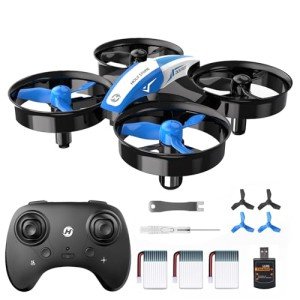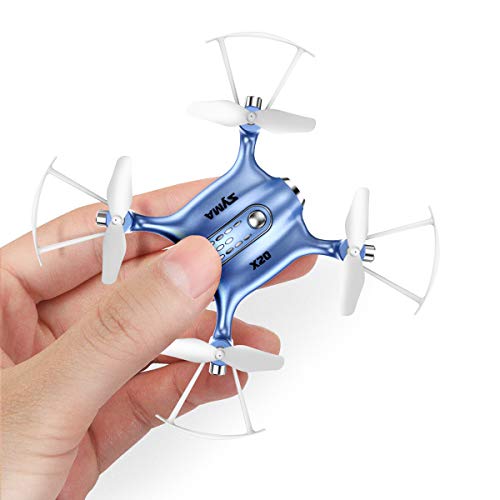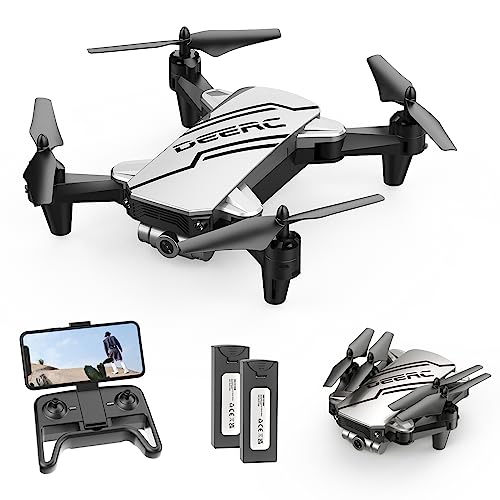Flying drones can be an exciting adventure for kids, but safety is super important. Here are some simple tips to ensure kids have fun while staying safe with their drones.
First up, make sure your kids understand the basics of drone operation. Teach them how to control the drone and explain what each button does. It’s also a good idea to practice flying in an open area without obstacles. This helps them gain confidence and learn how to handle the drone better.
Next, check the weather before heading outside. High winds and rain aren't friendly to drones and can lead to accidents. Clear skies and light winds are perfect for flying. Also, remind kids to keep the drone within their line of sight. This way, they can avoid hitting trees, houses, or other people.
Setting boundaries is key for kids drone safety. Make sure they know where they can and can’t fly. Keeping a safe distance from people and pets is essential. Encourage them to avoid busy areas and respect private property. This helps prevent accidents and keeps everyone happy.
Lastly, remind your kids to follow the rules. Different places might have specific laws about flying drones, especially near airports or crowded areas. Make sure they understand that being a responsible pilot is just as important as having fun. With these tips, your kids can enjoy flying their drones safely and confidently!
Choosing Kid-Friendly Drones
When it comes to choosing the right drone for your kids, there are a few key things to keep in mind. First off, you want something that's easy to fly. Look for drones with features like one-button takeoff and landing, so your young pilots can get started without frustration. User-friendly controls make all the difference and help keep the experience fun and stress-free.
Next, consider the size and durability of the drone. Smaller drones are usually better for kids because they're lightweight and can withstand crashes. Look for models made from flexible materials that won't break easily. This way, your kids can worry less about damage and focus on what really matters—having a blast!
Safety features are crucial when it comes to Kids Drone Safety. Drones with propeller guards are a must. These nifty additions keep the propellers safe from little fingers and protect your kids from any potential accidents. Additionally, some drones have altitude limits and other safety settings. These features help ensure that your kids stay within a safe flying range.
Finally, think about battery life. You'll want a drone that can fly long enough for your kids to enjoy their time outdoors without constant recharging. A drone with a battery life of at least 10–15 minutes will keep them entertained without too many breaks. Plus, having spare batteries on hand can extend the fun!
Bwine F7GB2 4K Camera Drone with GPS
Capture stunning aerial footage and enjoy precise navigation with this user-friendly drone
Product information
Product Review Score
4.32 out of 5 stars
33 reviewsProduct links
Understanding Drone Regulations for Families
When it comes to flying drones, understanding the rules is super important, especially for families. There are regulations in place to keep kids and everyone else around them safe. You don’t want to be the person who accidentally causes a problem because you didn’t know the rules.
First off, check if you need to register your drone. If it weighs more than a certain amount, you may have to register it with the FAA. Registration is pretty simple and helps keep track of all the drones out there. Plus, it’s always good to teach your kids about responsibility from the start.
Next, think about where you fly. It’s best to stick to open spaces away from people, roads, and buildings. Parks or wide-open fields are great spots. Also, make sure to keep an eye on local laws. Some places have specific rules about flying drones, especially if you’re near schools or crowded areas.
Kids Drone Safety doesn’t just mean following the regulations. Teach your kids the importance of being aware of their surroundings while flying. Encourage them to stay focused, avoid distractions, and never fly too high or too far away. These habits can prevent accidents and help your family have a fun time with your new hobby!
Finally, always keep an eye on the weather. Windy or rainy days are not the best for flying drones. By staying aware of the rules and being thoughtful about where and how you fly, you can help create a safe and enjoyable experience for everyone involved.
4 Pack Coreless Motors for Mini FPV Drones
Upgrade your mini FPV drone with these powerful coreless motors for smooth flights and impressive performance
Product information
Product Review Score
4.25 out of 5 stars
37 reviewsProduct links
Benefits of Drones for Kids
Drones for kids are not just cool gadgets; they offer some pretty awesome benefits too. First off, they give kids a chance to get outside and explore. Flying a drone gets them moving and encourages adventure. Whether they’re zooming across the backyard or capturing stunning views from above, kids can’t help but enjoy the fresh air and sunshine.
Safety is another big plus. With kids drone safety in mind, these devices come with features to help prevent accidents. Many drones have built-in collision avoidance systems and can automatically land if they lose signal. This makes it easier for kids to learn the ropes while keeping them out of harm's way. Parents can relax knowing that their little ones are flying responsibly.
Drones also spark creativity and learning. Kids can take stunning photos or videos, promoting their artistic side. They can even use drones for school projects, making learning more engaging. If they want to dive into STEM skills, flying a drone can help them understand physics and technology without even realizing it. It’s a fun way to gain knowledge and skills they’ll carry into the future.
Finally, flying drones can enhance responsibility. Kids need to follow safety rules and guidelines, which teaches them good habits. Whether it’s maintaining their drone or ensuring they fly it in safe areas, they learn to be mindful and considerate of others. This kind of responsibility is vital and can set them up for success in other areas of life.





